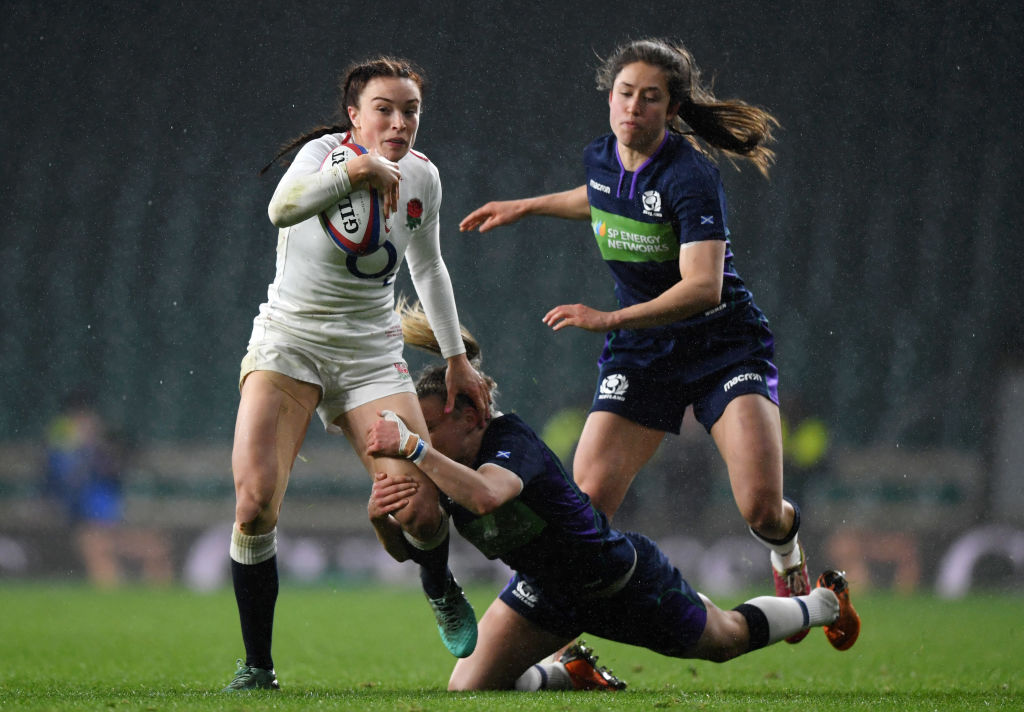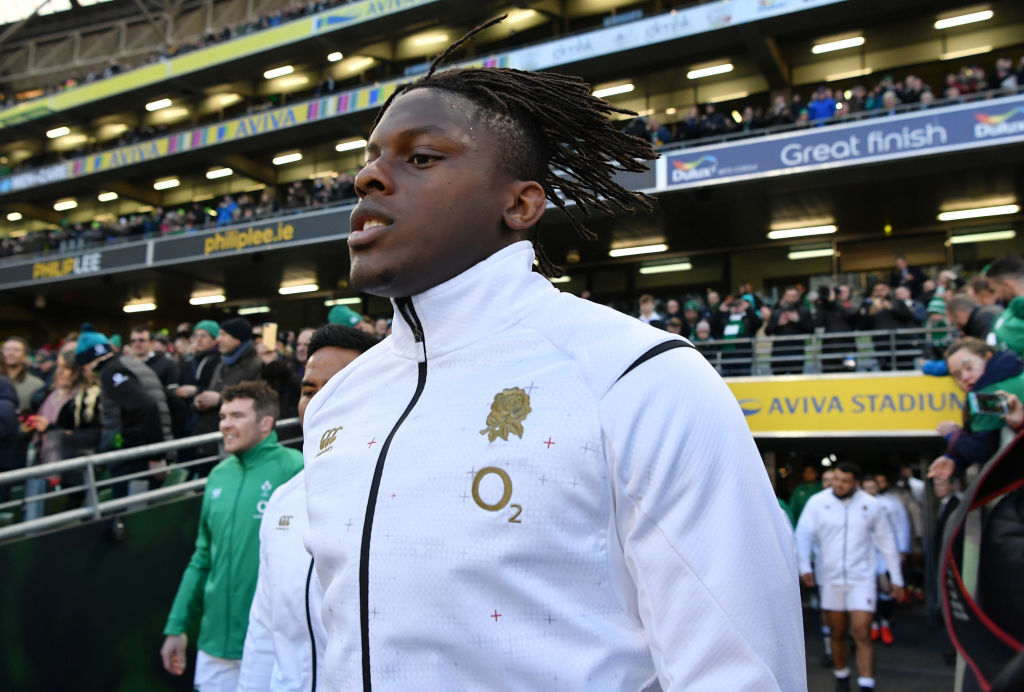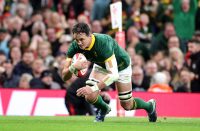The Grand Slam performance of the Red Roses was head and shoulders above the rest. The second half against France was the exception, but by then the damage had been done and Les Bleues lost their tournament hopes there and then.
England fly-half Katy Daley-McLean has been simply sublime. Much of what makes England good at the moment has to do with her control of the game, her ability to mix attack and bring players around her on to the ball. Katy’s now consistently excellent performance is down to hard, hard work over a period of many years as an amateur but England’s new professional status does highlight the current inadequacies of this tournament.
The reaction of Wales during and following their game against England in Round 3 was significant.
The message delivered by Welsh players and pundits was that it was okay to celebrate losing by nearly half a century (51-12) because they were playing against a professional outfit. Wales seem to be using the change to England’s status as a new bench mark to justify their own stagnation. But this score line is not a new thing, they have not just started losing to England this year.
Over the last nine Six Nations fixtures between the two teams England have scored 272 points to Wales’ 45. In five of these fixtures Wales were nilled. Where is the development at the top level in Wales? Post-match, experienced player Elinor Snowsill stated that there is absolutely no pressure on Wales; all the pressure is on England. While the latter is partly true the former should not be.
Playing at international level there should be pressure. Individual gains, unit targets, squad goals and Union expectation. Wales should be heaping the pressure on to try to improve, because if they don’t what, may I ask, is the point? Individuals I have no doubt are working hard but there is a collective responsibility that goes beyond this.
Wales did sneak above Ireland in the table and for that there needs to be some credit but Ireland have been poor this year. Where now retired players such as Lynne Cantwell and Fiona Steed contributed on the pitch to rather better performances than we have seen this year, these same players are now venting their frustration.
There has to be investment for the women’s 15- a-side game. There needs to be some succession planning, some forward movement and desire to support a team that has in the past competed well on the world stage but is currently going backwards. From fourth at the 2014 Women’s World Cup, and famous victors over the Black Ferns, to now facing the reality that if nothing changes, they may not even qualify for the next.
Scotland lost to France and have yet to record a win or bonus point in this tournament, however there are positive signs. I wrote in my championship preview that Scotland will perform better than their world ranking, lower than all other teams in the tournament, suggests they should.
There have been glimmers of hope – the two tries they scored against France were significant. You have to go back to 2010 for the last time Scotland managed a try against France. Scotland continued scoring tries in their fixture against Wales and, in fact, beat them on that regard with three tries to two but it was the boot that won it for Wales 17-15. Three unconverted tries against two converted tries and a penalty.
It was an agonising loss for Scotland, even more so as Wales crossed for their second try in the 81st minute of play. More heartbreak continued in a one-sided game at Twickenham (80-0) to finish, but despite their wooden spoon Scotland must take some positives.

Their continued building support of players, four of whom are full time, demonstrates their desire to develop and with the announcement that Shade Munro is moving on from coach, perhaps this provides an opportunity for someone with new energy to take them to the next level.
France were my title favourites but I have been left deflated that they did not provide the spark – the competitive edge that we so badly crave. I hope their drop in form does not last as long as their male counterparts.
But I have saved the best to last, it is Italy’s second-place finish that is the saviour of this year’s championship.
Their fifth round, bonus point win against the French elevated them to their best ever placing. Consistency in team selection, plus dedication and the skill of the coach, has built confidence within the team while the emergence of stars such as Giada Franco combined with the experience, maturity and leadership of players such as Manuela Furlan, has led Italy to be the team we are all looking towards.
They confirm that development can be made regardless of professional status and smaller playing pools. If Italy can do it so, too, can Wales, Scotland and Ireland. And if these nations want the Women’s Six Nations to continue to be taken seriously and attract title sponsors then they must. If they don’t then structural changes have to be made. Score lines more akin to cricket are no longer acceptable.

Itoje is not the answer to captain conundrum
THE men’s tournament has fewer worries about sponsorship or such one-sided games but England have a few worries all the same.
If the tournament was based on half time scores then England smashed it winning 119-35 across the five games – but second half losses of 18-3 against Wales and 31-7 to Scotland have been their downfall.
Eddie Jones has asked us to take sympathy, with the 2015 World Cup failure still in their minds. He says he will bring in a leadership expert and all will be fine and dandy before August. Or will it?
I know from experience that the development of good leaders can take a lot longer than that. And here is England’s problem. At times of pressure who do the players look to? Owen Farrell for me is not the answer – I think it should be someone on the front line who can physically as well as mentally lead from the front.
Who is our Martin Johnson of the modern era? Or a Sarah Hunter who is composed but unmovable, quietly aggressive but never losing her cool.
Eddie’s first mistake was to relegate Dylan Hartley from captain to co-captain. Perhaps he was already looking to Jamie George to take over as first choice hooker but to water down the captaincy was destructive. Leaders have to step up not step in.
Maro Itoje is a name that’s touted as a possible World Cup captain but I don’t agree. In my opinion, there is more style than substance to this player and he does not make my starting eight. His upward trajectory through the age groups has been phenomenal and he has shown leadership qualities along the way but while the hype has continued on this upward path, I feel his performance has plateaued.
And with penalties creeping in to his game I think he needs more time to reach his potential. Can Itoje be a world class player and leader? Not in 2019 – 2023 perhaps.
Kruis would get my vote to lead. And for added grunt, sheer hard work and leadership lessons learnt the hard way I would not be averse to bringing Robshaw back in to the World Cup squad. My starting pack would be Genge, Hartley, Sinckler, Kruis, Launchbury, Wilson, Curry, Vunipola, with Courtney Lawes providing impact.
CATHERINE SPENCER / Photo: Getty Images























